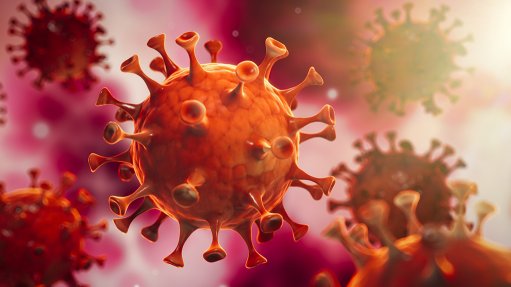
With the coronavirus (Covid-19) pandemic entering second waves in many parts of the world, World Health Organisation (WHO) Health System Stewardship Dr Rajesh Narwal on Friday stated that there was an urgent need for an effective and safe Covid-19 vaccine that was accessible to all.
Narwal spoke at a virtual dialogue hosted by the Human Sciences Research Council’s Africa Institute of South Africa and Nabio Consulting, on the implications for an international Covid-19 vaccine policy.
“We see second lockdown in some countries and in South Africa, the Eastern Cape has seen a sudden spike in the number of Covid-19 infections, prompting the country’s Health Minister Dr Zweli Mkhize to call for urgent action,” he pointed out.
Prevention remains the best solution and non-pharmaceutical interventions are a key defence, he said, however, he added that virus fatique was setting in, with people ignoring measures to flatten the curve, such as wearing of masks, hand sanitising and physical distancing.
In April, the WHO launched the Access to Covid-19 Tools Accelerator – a global collaboration to accelerate development, production, and equitable access to Covid-19 tests, treatments and vaccines – to reduce not only the risks of several diseases but also end the pandemic so that economies could get back to normal.
The vaccines pillar – convened by CEPI, Gavi and WHO – is to speed up the search for an effective vaccine for all countries while supporting the building of manufacturing capabilities and buying supply ahead of time so that two-billion doses can be fairly distributed by the end of 2021.
Meanwhile, Narwal pointed out that of November 12, there were more than 200 candidate vaccines globally, 48 candidate vaccines in clinical evaluation and 11 in phase-3 clinical trial.
One or more of the vaccine candidates could achieve emergency use approval by the final quarter of 2020.
The pace at which countries receive vaccines depends on the readiness of the country and availability of doses. However, in the case of severely restricted supply, the timing of country shipments would be based on risk assessment according to threat and vulnerability.
He explained that allocation will move to phase two once all countries have reached 20% coverage. Countries with a higher risk would receive the doses they need faster than others, although all countries will receive some doses in each allocation round.
The importance of registering clinical trials
South African Medical Research Council senior scientist Duduzile Ndwandwe said it was important for Africa to participate in Covid-19 research, as it will be able to generate evidence and sufficient data on the safety and efficacy for the continent’s context.
Ndwandwe explained that it was important for countries to register clinical trials as it reduced publication bias and selective outcome reporting, and fulfilled publication mandates and allowed transparency, thus enhancing public trust.
She also pointed out that access capacity for cold chain management could become an issue with the promising vaccines and stressed that plans for prioritisation and implementation of these vaccines and medicines remained critical.